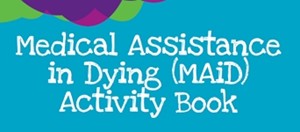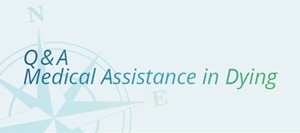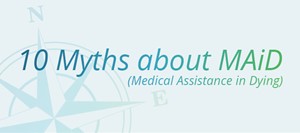Capacity and consent and why they are important
“You do not need to be able to balance your cheque book to have capacity to decide whether you would like MAiD.”
One of the important legal requirements for having an assisted death is that you must have what is called “capacity” to make medical decisions. You need to have capacity at the time of both the assessments, when making the written request, as well as just before having an assisted death (except under very specific circumstances).
Read more
When you are requesting MAiD, you must be able to give permission or agree to an assisted death after receiving all the information needed to make this decision. This is known as informed consent. You must have the ability to understand:
- Your medical diagnosis.
- All treatment options.
- Options to relieve suffering, including palliative care.
- The information you have been given about having MAiD.
- That medical assistance in dying will cause your death.
The ability to understand and appreciate the information given to make the decision is known as capacity. A person can have the capacity to make a medical decision for themselves, like MAiD, but may not be able to balance their cheque book.
You might worry about taking your pain medications before the assessment or before having MAiD because you are afraid that if you are not ‘alert’ that you might not be able to give consent. If you are concerned about how medications may impact your ability to make decisions, discuss this with your healthcare providers and the MAiD practitioners.
If you or your family think that you are at risk of losing capacity, contact the MAiD office and discuss the options with them.
If your natural death is in the foreseeable future, they will talk with you about whether you would like an assisted death even if you are confused or unconscious.
If your natural death is not foreseeable and you or others think you may be at risk of losing capacity, call the MAiD office. If you have already been approved for MAiD, you may be able to have MAiD sooner than the 90-day timeframe. If your death is not foreseeable, you must have capacity to give consent right before having MAiD.
Read more
More Articles

What is MAiD?

The application process for MAiD

Why do people consider MAiD?

Telling family and friends

Talking to children and youth about MAiD

Starting a conversation about MAiD with the person who is ill

Seeking information and starting the process

Having the assessments

Choosing when and where

Planning for the time left

Planning the day of MAiD

A medically assisted death

Grief after a medically assisted death

For healthcare providers
Featured Content

Understanding MAiD for individuals and families
Read More
MAiD Activity Book for Kids
Read More
Understanding MAiD for healthcare providers
Read More
Infographic - Q&A about MAiD
Read More
MyGrief.ca Module - Grief and Medical Assistance in Dying (MAiD)
Read More


